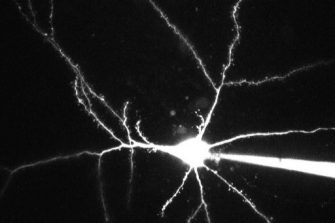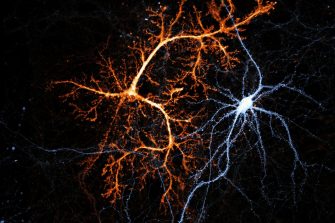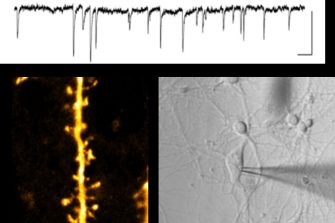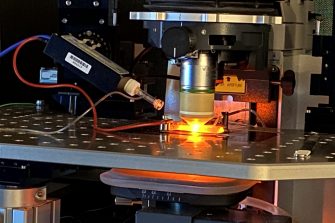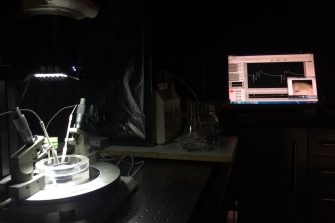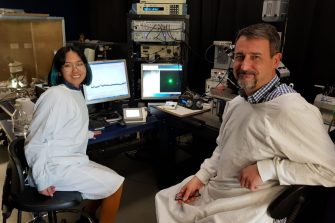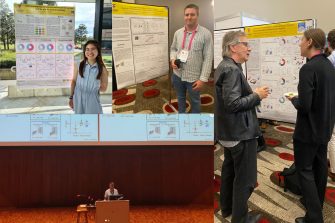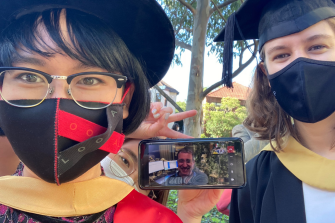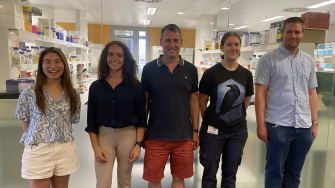
Research theme
INVESTIGATING NEUROPHYSIOLOGICAL ADAPTATIONS UNDERLYING MEMORY AND ADDICTIVE BEHAVIOUR
Our group examines how changes in neurons and their connections mediate learning. We focus on motivated learning which underlies addiction and associated behaviours. This work complements Psychology collaborators who investigate the behavioural effects of manipulating these circuits.
Our research uses a combination of advanced neurophysiological techniques including electrophysiology, optogenetics, and fluorescent imaging to determine how brain regions involved in motivated behaviours are connected on a cellular level, and how learning or drugs of abuse changes these connections.
Our goal is to identify and validate therapeutic targets for the treatment of the aberrant learning processes that underlie conditions such as addiction, obesity, and post-traumatic stress disorder. Ultimately, we hope to use our knowledge of the underlying connections to support beneficial circuits, such as those critical to abstinence, and attenuate circuits that drive detrimental behaviours such as those associated with relapse.
Group Photos
Team
Collaborators
- Gavan McNally, UNSW Psychology
Students
Eddie Wise (PhD candidate)
Sophia Gilchrist (PhD candidate)
Si Yin Lui (PhD Candidate)
Future student projects
Current projects examine motivated-learning brain circuits; defining their functional connectivity, how they are changed by experience, and how these changes can be reversed.

